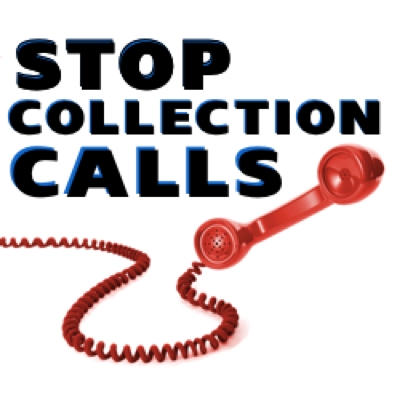When It’s Time To Stop Harassing Collection Calls By Collectors

Before you can begin to address your financial situation, you need to be able to think. It’s stressful enough worrying about how you can get more income, how you can get healthy, how you can arrange your debt situation, and how you can maybe sell off some of your assets. Add in the worry of your family and it’s all you can do to breathe.
The last thing you need is for a creditor to constantly call you, make you feel guilty that you’re behind in your payment and cross-examine you on how you can pay off your debt. Multiply the calls from one creditor by each and every creditor and the stress just mounts so you can’t think.
There are many ways to get relief. These ways include Bankruptcy relief and various federal and even Connecticut state laws. The Fair Debt Collection Practices Act is the most used protection (outside of bankruptcy relief).
Bankruptcy Relief
The filing of a Chapter 7 or Chapter 13 bankruptcy petition creates an automatic stay. Under section 362 of the United States Bankruptcy Code, the filing of the petition stops any actions by creditors against the debtor with certain exceptions. Stopping actions includes stopping phone calls. The stay provision means creditors can’t call, they can’t file a lawsuit, and they can’t have a collection company or an attorney contact you.
Stay means than hence forward, every action the creditor takes must go through the bankruptcy court and not through the person who owes the bills. Most creditors will obey this stay. The ones who don’t obey often will stop as soon as you or the bankruptcy court informs them that a petition was filed.
The Stay doesn’t apply in certain situations. Debtors can’t use the stay protection to stop payments for child support. They can’t use it to stop an eviction. And they can’t use the stay protection to stop criminal cases. The stay also doesn’t apply if you create a new debt after you file the bankruptcy petition.
What You Should Do if the Creditor Continues to Call
Inform the creditor that you filed a bankruptcy petition: Sometimes the creditor or the collection agency didn’t get notice of the bankruptcy petition. Telling them you filed and giving them the Bankruptcy court number will normally be all you have to do.
Tell the bankruptcy court: Usually you will tell the trustee appointed to handle your case. The trustee will then tell the creditor that the calls have to stop or the creditor/collection agency will suffer sanctions. Sanctions can include fines, damages and the fees of your lawyer.
Notify your lawyer: Your lawyer will then make sure the creditor is aware that you are asserting the automatic stay injunction relief and will make sure the creditor complies.
Non-Bankruptcy Relief – Fair Debt Collection Practices Act
The Fair Debt Collection Practices Act (FDCPA) is a law which is regulated by the Federal Trade Commission. The aim of law is to make sure collection agencies and others who are working to get you to pay your debts use fair, non-abusive and non-deceptive practices. The law applies to collection agencies, attorneys who represent these agencies and other companies who regularly collect debts and then try to get the debtor to pay.
What debts does the FDCPA cover? The law covers personal debts such as your home bills, credit cards, medical charges, car bills and other family expenses. It doesn’t apply to business obligations.
How does it stop the phone calls? The FDCPA regulates the hours when the credit company or lawyer can call you. There can’t be any calls during the time you might normally be at sleep. This means calls can’t take place between 9pm and 8am. Calls can’t be made by the credit collectors to your work place if you tell the credit collector in writing or even orally.
What other ways does the FDCPA stop calls? The law also protect debtors from these harassing calls between the day hours (8am to 9pm). After the initial call from the creditor, you/the debtor have the right to tell the collector to stop the calls by writing them (you must do so in writing) to stop. Once the debt collector gets your letter, the creditor has to stop calling you – find out more here.
They can, though, proceed, to bring legal action against you – so know that the letter does have the risk that the credit company will proceed to the next phase.
Another way to stop the calls is to hire a lawyer. Under the Act, if you have a lawyer and tell the collection company the name and contact information of the lawyer, then the credit company MUST contact the lawyer and stop calling you.
The lawyer is there for you to handle your matters. Normally, you’re paying the lawyer good money. This is one of the benefits of having a Connecticut lawyer handle your financial problems. The lawyer will take all the harassing calls so you can concentrate.
What if you dispute the debt? If you write the debt collector in writing that you contest the full or partial amount, the creditor has to stop calling and provide you verification of the debt. Once the validation is sent to you, the credit company can start calling again.
If the creditor does call, are there any restrictions on the way in which the call can take place? The debtor, by the FCDPA provisions, must be professional. This means you can’t be harassed. You can’t be abused. You can’t be threatened.
The creditor can’t make any false statements such as that you may be guilty of a crime or falsely claim you own money when they know you don’t. Many other restrictions on the conduct of the collector apply to insure that the call is fair and non-personal. Your lawyer will know all the restrictions.
The best course of action is to speak with an experienced Connecticut attorney who will explain your rights, review your options and handle the stresses for you.




